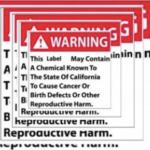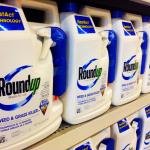A number of you are now reading a really interesting article by Chuck "Chuckie" Dinerstein, our beloved director of medicine, about how beets might be useful in lowering your blood pressure.
IARC
Welcome to California, the Wild West - geographically and otherwise. Especially when it comes to science.
As we have seen with glyphosate, IARC’s assessment, even if contradicted by many other governmental agencies, can result in the banning of compounds and billions
Join hosts Cameron English and Dr. Chuck Dinerstein as they break down these stories on Episode 46 of the Science Dispatch podcast:
Why does Canadian ketchup contain sugar and US ketchup high fructose corn syrup?
The Wall Street Journal recently reported that a St. Louis jury ruled in Bayer’s favor this September, delivering the company its fifth consecutive trial victory.
If glyphosate is such a deadly pesticide, why do activist groups have to lie about it?
“This Roundup ingredient might cause cancer—but the EPA won’t ban it,” Popular Science told its readers in a terribly misleading January 13 story about the weedkiller glyphos
The Conversation bills itself as a website designed to “Unlock the knowledge of researchers and academics to provide the public with clarity and insight into society’s biggest problems.” Their s
This is not a new issue. In fact, the ACSH has published numerous articles on this over the years, beginning in 2017.












